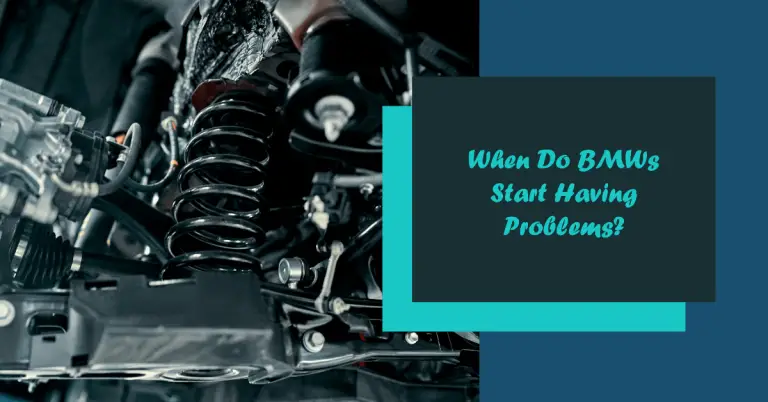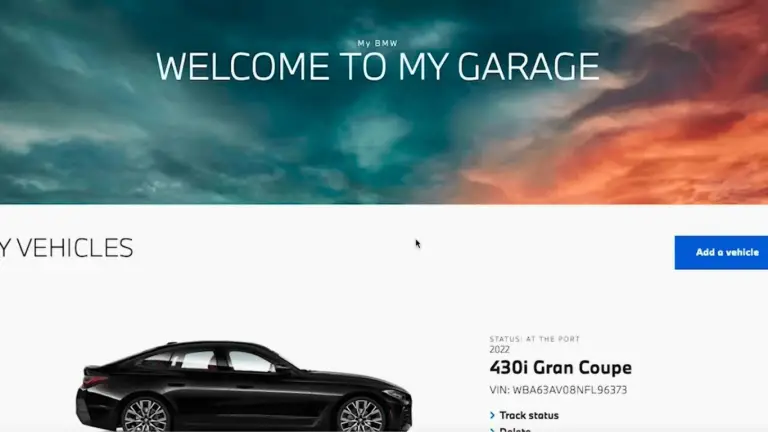Unlock Your BMW’s Full Potential with the TCU: What You Need to Know
Modern BMW models are technological marvels, loaded with cutting-edge features and performance capabilities. But much of this potential remains locked away, inaccessible to owners without diving into complex systems like the car’s computer, known as the TCU or telematics control unit. Unlocking the TCU allows full customization and activation of your BMW’s hidden functions.
But is hacking the TCU worth the risks involved? This complete guide will cover everything you need to know about using the TCU to unlock your BMW’s full capabilities. You’ll learn:
- What the TCU is and its role in newer BMW models
- Why people unlock the TCU for more customization and performance
- The step-by-step process to access and modify the TCU safely
- Potential risks and precautions to take when making TCU modifications
- Alternatives to unlocking the TCU you should consider first
After reading, you’ll understand exactly how unlocking your BMW’s TCU works, whether the reward is worth the risks, and smart alternatives to achieve the performance and customization you want without hacking sensitive systems. Let’s get started!
What is the TCU in a BMW?
The TCU, or Telematics Control Unit, is the central computer that controls many major systems in late model BMWs. It first appeared in BMW models in 2001. The TCU receives data from components throughout the vehicle and coordinates their operation.
For owners, the TCU is best known for running the iDrive system. This provides access to entertainment, navigation, vehicle settings, and other technology. But under the hood, the TCU has a much broader role.
The TCU is essentially the central brain coordinating electrical systems throughout the vehicle. It’s directly linked to and controls components including:
- The engine control unit (ECU) which manages engine performance
- The transmission control unit (TCU) operating the gearbox
- Suspension, steering, braking, and stability management
- The heads-up display, lighting, parking sensors, and other technology
- Communication systems like Bluetooth connectivity and BMW Assist
By managing all these systems, the TCU plays a crucial role in everything from daily driving to performance and safety. When you change vehicle settings through iDrive, those preferences are stored and controlled by the TCU.
Why Would You Want to Unlock the TCU?
With such critical systems under its control, the TCU is tightly integrated into BMW models. This makes customization or accessing hidden features challenging. Here are some top reasons BMW owners unlock their TCU:
Customization of Vehicle Settings
The TCU manages a wide array of vehicle settings controlled through the iDrive system. Everything from dashboard and heads-up display layouts to start-up animations and sound can be customized. But many options are often locked even if the vehicle supports them.
Unlocking the TCU allows all settings to be modified for unique personalization. Display colors, gauge designs, lighting options and more can be tailored to your exact preferences rather than what BMW enables by default.
Adding Performance and Efficiency
This is one of the biggest motivations for unlocking the TCU. The ECU controlled by the TCU manages parameters like horsepower, torque, throttle response, gear shifting, fuel efficiency, and much more.
With the TCU unlocked, engine timing, boost pressure, and other variables can be optimized for your goals. Whether you want maximum horsepower or improved gas mileage, custom Engine Control Unit (ECU) programming unleashes performance well beyond factory specs.
Activating Hidden Functions
Modern BMWs have many capabilities in software that are inactive from the factory. For example, features of BMW’s Comfort Access system like opening the trunk hands-free could be enabled. Digital features like Android Auto, Apple CarPlay, DVD playback, and augmented reality displays may be available but blocked without TCU access.
Unlocking the TCU lets you browse its full feature set and activate anything your BMW’s hardware supports but didn’t ship enabled from the factory.
Resolving Issues
TCU modification is sometimes necessary simply to fix problems. As an example, adjusting sensor thresholds through the TCU could resolve error messages related to oxygen sensors or fuel trims. Clearing faulty codes and recalibrating components through the TCU can save major repair bills.
So while performance and added features are exciting benefits, for some unlocking the TCU is needed just to restore proper operation of their BMW.
Step-by-Step Process to Unlock the TCU
Theoretically, unlocking your BMW’s TCU lets you tap into its full potential. But how is it done? Here is an overview of the complex unlocking process:
Research
Not all BMW models and model years can have their TCU unlocked the same way. Research which security keys, encryption, and processors your specific BMW uses to determine techniques and tools required. Forums dedicated to BMW modding like BimmerPost are a good resource.
Acquire Required Tools
Specialized hardware and software tools will be needed to access and modify the TCU. A common option is the Carista OBD2 scanner customized to work with BMW models. Other professional-grade tools may be necessary depending on the BMW.
Gain Access to the TCU
Just reaching the TCU safely requires disassembly of trim and panels in the trunk, center console, or behind the glovebox depending on model. DIY tutorials can guide safe access to avoid damage. BMW also didn’t make the TCU easy to communicate with, requiring electrical workarounds.
Read and Backup the TCU
Before making any changes, the TCU data needs to be read and backed up in case anything goes wrong. This usually involves connecting specialized tools to access the encrypted data.
Modify Parameters
Finally, TCU settings can be adjusted to enable custom options and performance tweaks. But this requires an advanced understanding of how parameters interact across BMW systems. Consulting BMW coding experts is highly recommended before modifying values.
Write Updated TCU and Reassemble
Once modification is complete, the updated TCU is written back to the car and all trim panels carefully reinstalled after disconnecting tools. Then it’s time to test out your work!
As you can see, even gaining access to the heavily protected TCU is challenging without taking apart interior trim and electronics. Actual modification requires specialized software, understanding of BMW systems coding, and electrical workarounds. While determined DIYers have pulled it off, for most people professional help is highly recommended.
Risks and Precautions When Unlocking the TCU
Gaining admin access to your BMW’s central computer has tantalizing benefits. But it also comes with serious risks to consider:
Bricking
If anything goes wrong during reading or writing data to the TCU, it can become corrupted or damaged beyond repair. This effectively bricks critical control systems that may disable the vehicle. At minimum, expensive TCU replacement would be required in this situation.
Dealer Detection
Even if successful, dealers can detect TCU tampering during maintenance and deny warranty claims. Modification logs and error codes thrown can alert BMW technicians to hacked systems. This jeopardizes warranty coverage even for unrelated issues.
Legal Issues
Accessing the TCU requires circumventing BMW security measures which is legally ambiguous at best, if done without manufacturer approval. TCU hacking could violate anti-circumvention laws like the DMCA. Also, many tools that work on the TCU may violate telematics regulations when used off public roads.
Security Vulnerabilities
Once hacked, the TCU could be left more vulnerable to exploits. Skilled attackers may gain remote access to hijack connected features ranging from door locks to vehicle location tracking and disabling of components once protective programming is altered.
Difficult Reversal
If issues arise, removing modifications and restoring factory TCU settings can be challenging if backups weren’t created and changes weren’t thoroughly documented. Coding errors could permanently damage operation.
While the TCU unlocks amazing potential, even experts recommend caution. Thorough research, using reputable tools, consulting professionals, and comprehensive backups can help reduce risks. But there is always a possibility of permanent damage that destroys components outright.
Alternatives to Unlocking the TCU
Given the significant risks and complexity of directly hacking the TCU, most BMW owners are better off considering legal alternatives. Here are a few modifications and upgrades to unlock more performance and features without jeopardizing your vehicle:
Aftermarket ECU Tuning
Specialized companies offer ECU tunes that optimize parameters for your engine and BMW model safely within factory limitations. This can significantly boost horsepower, torque, throttle response, and fuel efficiency without invasive TCU modification.
Bluetooth and Multimedia Upgrades
You can upgrade stereo, navigation, Apple CarPlay, and other systems legally through aftermarket components. There are solutions to integrate hands-free calling, media streaming, and navigation that don’t require tapping into the TCU directly.
Suspension, Brakes, Intake, Exhaust
Bolt-on modifications like lowering springs, big brake kits, cold air intakes and cat-back exhausts can take your BMW’s performance to the next level without electronics hacking required. Focus on legal hardware upgrades that don’t tamper with the complex TCU system.
Body Styling Modifications
Cosmetic enhancements like new front lips, side skirts, rear diffusers and spoilers plus blacking out trim pieces can totally transform the style and appearance of your BMW. Leave software alone and stick to legal exterior styling mods.
Wheels, Tires and Wraps
No hacking needed to upgrade your BMW’s wheels, tires, and exterior wraps. New rims with performance rubber and colorful vinyl wraps let you customize the style easily.
With some creativity, you can unlock much of your BMW’s potential and customize it to your style safely and legally. While the TCU offers ultimate control, safer alternatives help avoid the pitfalls of hacking into the central computer.
Unlocking the Full Potential of Your BMW
The TCU is the brains of the operation in modern BMWs. Accessing its settings lets you tap into hidden functions, optimize performance, customize features, and more. But directly modifying this critical system is extremely high risk. Permanent TCU damage, legal issues, security vulnerabilities, and warranty conflicts can result.
While tapping the full potential of your BMW through the TCU has rewards, most owners are better served using legal upgrades. Aftermarket ECU tuning, multimedia upgrades, handling mods, styling enhancements, and other bolt-ons can unlock a lot of hidden capabilities with way less risk than hacking directly into the central computer.
With some creativity, you can customize both the performance and style of your BMW to new heights without having to crack the complex and sensitive TCU system. Consider safer avenues for modification before attempting risky TCU hacking procedures. With smart upgrades, you can unleash more of your BMW’s potential while avoiding permanent damage that could cost you dearly.







